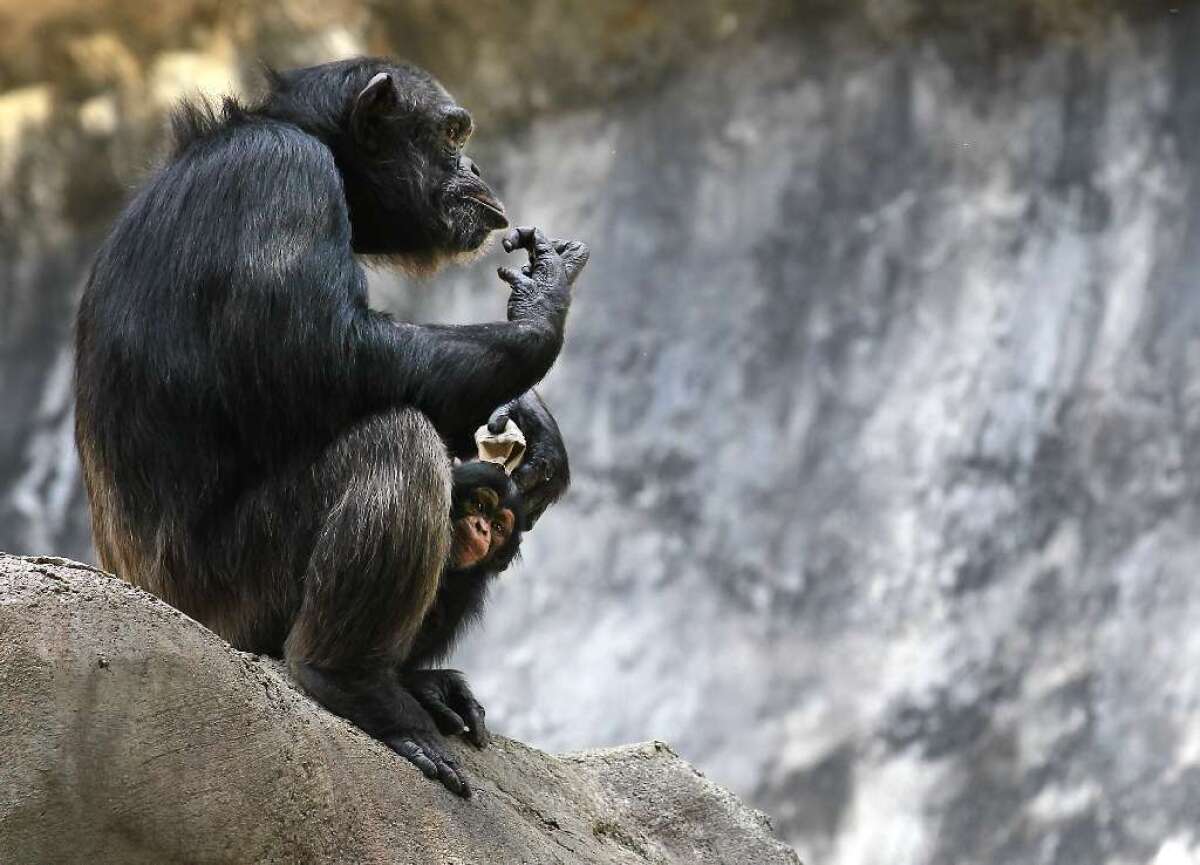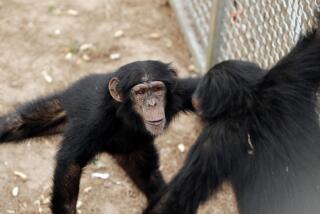Drinking game tests chimpanzees’ capacity for culture

- Share via
Do chimpanzees have culture? It may depend on your definition of that slippery concept, but a new study using juice and soft straws shows that chimpanzees fill a basic requirement: They can learn new behaviors from one another.
Many researchers argue that few species, and perhaps none besides our own, have the capacity for culture – learned behaviors to spread across a population and down through future generations. (For humans, the definition would include things like beliefs, aesthetics, moral codes and knowledge, but given that chimpanzees lack language and can’t be asked about subjective thoughts, observable behaviors will have to do.)
Previous research had shown that wild chimps in separate communities would use sticks in different ways to fish for ants, a sign that such behaviors went beyond instinct. The new paper, published online Wednesday in the journal PLoS ONE, actually catches captive chimps in the act of learning such different tool uses.
The study presents “the first experimental evidence for chimpanzees’ social transmission of a more efficient tool-use technique invented by a conspecific group member,” according to the authors.
Researchers from Kyoto University in Japan and the University of Kent in England gave two groups of chimpanzees straws and put them in rooms with juice boxes mounted onto the wall. One group started using the 7-inch straws to dip into a hole in the juice box, while the other started using the sucking method (as humans would for a milkshake, or pretty much any other drink). Sucking juice through a straw was 50 times more efficient: A chimp could down 50 milliliters of juice in 30 seconds, while it would take their dipping peers 10 minutes to pull out a mere 20 milliliters.
When the researchers put a straw-sucker and a straw-dipper in the same room, they found that the dipper would quickly adopt this better, faster method if they closely observed it in action.
The demonstrating chimps didn’t seem to mind this up-close-and-personal style of learning. One video of the experiment shows a curious chimpanzee putting his face right up in the face of another chimp who was sucking the juice through a straw, then grabbing a straw of his own to try out this new, better method.
“Chimpanzees switch technique when not satisfied with their own,” the study authors write. “Hence, necessity and opportunity appear to act as key prerequisites for cumulative cultural evolution.”
Follow me on Twitter @aminawrite.







